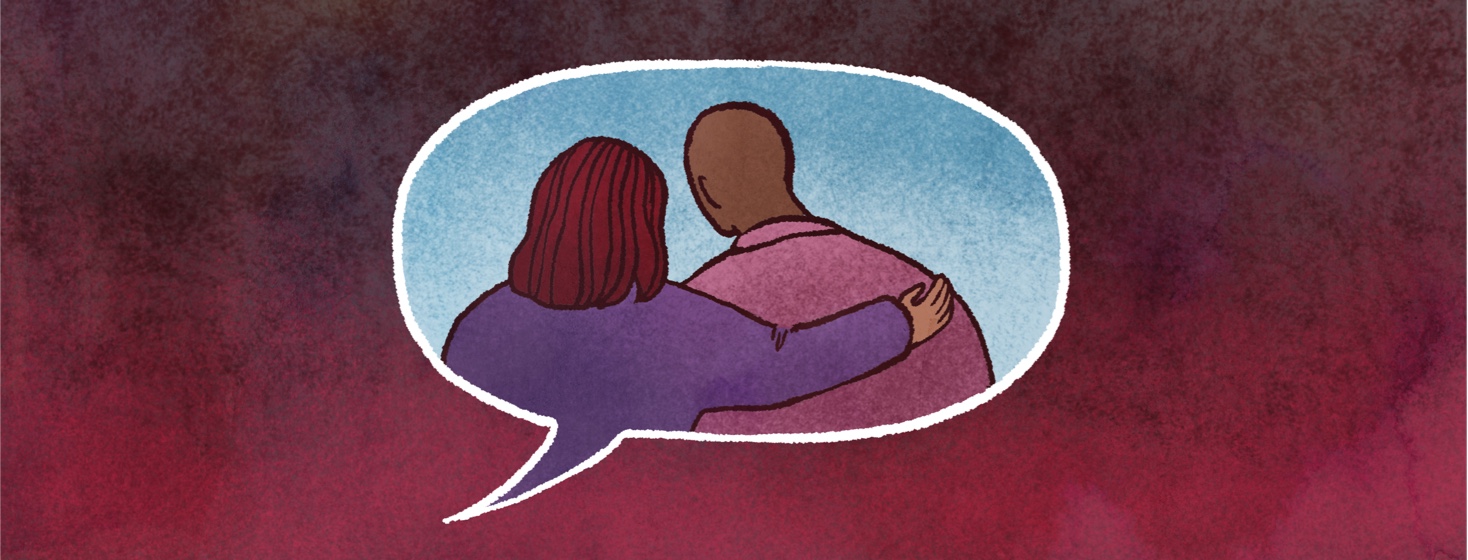A Male Breast Cancer Caregiver's Perspective
Linda talks about Bob and being his breast cancer caregiver.
Bob's metastatic breast cancer diagnosis
When was your loved one diagnosed? What led to the diagnosis (symptoms, monitoring, etc.)? In 2001, Bob felt a lump in his breast so he made a doctor’s appointment. Bob was examined by his physician, and then he was referred to another doctor. Because breast cancer is rare in men and this was 2001, they did not do a biopsy. Bob was relieved. In 2002 Bob’s clavicle fractured for no apparent reason, he had surgery and the pathology report came back benign. Again, in January 2003 Bob’s clavicle fractured again. He had surgery on his 41st birthday and was then diagnosed with breast cancer de novo. Bob then started chemotherapy, had a mastectomy and radiation.
Caregiver challengnes
What do you find the most challenging part of being a caregiver? The most challenging part of being a caregiver for me was to also try to find the balance in my life. When you become a caregiver you have so many added responsibilities when caring for someone else, it is hard to find time for yourself. You can get lost and you probably will. It is important to be able to bring yourself back to a balance if you can. There are times when it may seem like it isn’t possible. To always keep trying to finding it is so important. There were times in my caregiver journey where I felt like I was handling it all well, but then there were the times I felt like I wasn’t. All you can do is to keep trying to find the balance between the person you are caring for and yourself.
Advice for other cancer caregivers
What advice do you have for other caregivers? My best advice for other caregivers is to be gentle, kind, and patient with yourself. There is no right or wrong way to be a caregiver. Find time to do something for yourself, as often as you can. It may not be for very long but find time for you. Some ideas are a cup of tea, breathing exercises, meditation, yoga, reading, journaling, or just relaxing. Also, ask for help from family and friends or professional help. Getting support so you can have time for yourself. By taking care of yourself, you in turn will be a better caregiver for your loved one.
Share with us
Caregivers this space is just for you. We want to hear from you. Share with us in our forum or complete our poll!

Join the conversation